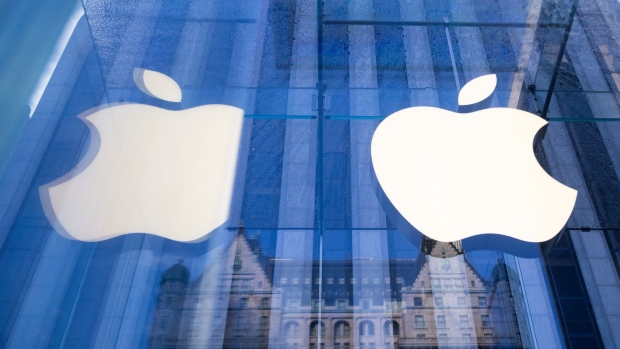Oct 12, 2021
Apple CEO’s Anti-Leak Edict Broke the Law, Ex-Employee Alleges
, Bloomberg News

(Bloomberg) -- Apple Inc.’s restrictive employee handbook rules and Chief Executive Officer Tim Cook’s recent pledge to punish leakers both violate U.S. law, according to new complaints that a fired activist filed with the National Labor Relations Board.
In filings Tuesday, former Apple employee Ashley Gjovik alleged that a September all-staff email from Cook, saying that “people who leak confidential information do not belong here,” violated the National Labor Relations Act, which protects U.S. workers’ right to communicate with one another and engage in collective action about workplace issues.
Cook wrote that Apple was “doing everything in our power to identify those who leaked,” and “we do not tolerate disclosures of confidential information, whether it’s product IP or the details of a confidential meeting.” His email followed media reports about a companywide internal meeting the prior week at which management fielded questions about topics such as pay equity and Texas’ anti-abortion law.
Gjovik’s filings also challenge what she says are several policies in Apple’s employee handbook that illegally interfere with workers’ rights, including restrictions on disclosing “business information,” talking to reporters, revealing co-workers’ compensation or posting impolite tweets.
Apple didn’t immediately respond to requests for comment.
Gjovik, a senior engineering program manager, was fired by Apple in September after filing complaints with state and federal agencies, including the U.S. Occupational Safety and Health Administration and U.S. Equal Employment Opportunity Commission, as well as the NLRB.
In documents shared by Gjovik, Apple claimed she was terminated for violating policies such as the disclosure of confidential product information. Gjovik has said she was fired in retaliation for her prior complaints, which alleged that -- after voicing fears about workplace health hazards -- she was harassed, humiliated and asked not to tell co-workers about her concerns.
Claims filed with the NLRB are investigated by regional officials, who if they find merit in the allegations and can’t secure a settlement, then issue a complaint on behalf of the labor board’s general counsel. That is then considered by an agency judge. Those judges’ rulings can be appealed to the NLRB members in Washington, and then to federal court. The agency has the authority to order companies to change illegal policies and inform employees about their rights, but generally can’t hold executives personally liable for alleged wrongdoing or issue any punitive damages.
©2021 Bloomberg L.P.





